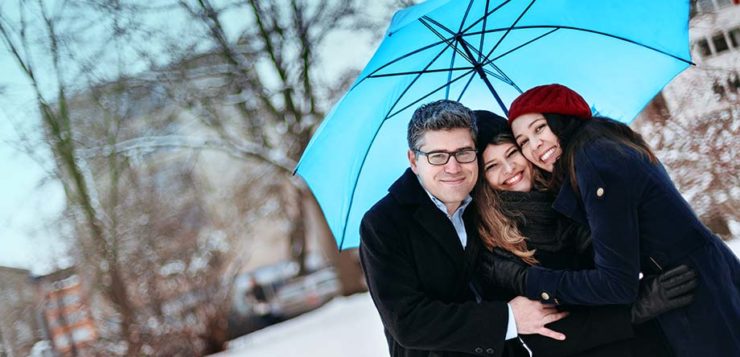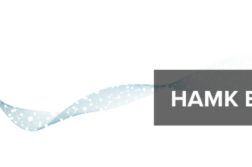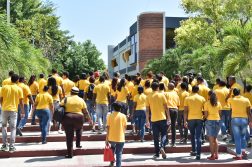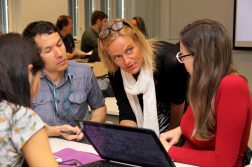The VET Teachers for the Future, a professional teacher education programme I took part at Häme University of Applied Sciences (HAMK) in 2014, made me more conscious about my role as a facilitator, what made me change my professional practices towards a more learner-centred approach.
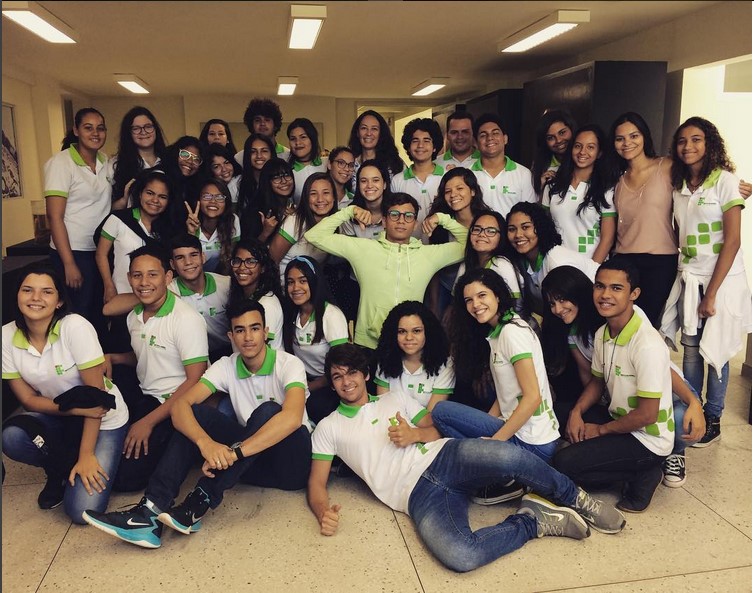
Currently, I teach at the campus Cidade Alta of the Federal Institute for Education, Sciences and Technology of Rio Grande do Norte, located in Natal – Brazil. There are courses that combine high school and vocational education, which last four years, and a major part of my students are teenagers. Other courses are strictly vocational, with the duration of two years, targeting those who are looking for further qualification after finishing high school, and all my students are adults at any age.
Many challenges come when the teacher needs to work with such a diversity of ages, contents and courses. E.g., if the content is the same, the approaches used with the 3rd year students (17/18 years-old ones) usually do not work well with the 1st year (14/15 years-old ones). I noticed the level of independence differs a lot. The 1st year students are much more teacher-centred in their minds and actions in classroom when compared to the 3rd year-students. To deal with those kind of issues, I need to be always under construction as a professional, looking for new methodologies, new teaching strategies, new technologies in order to create a personalized learning culture for the classroom. Each group is different and requires a different approach.
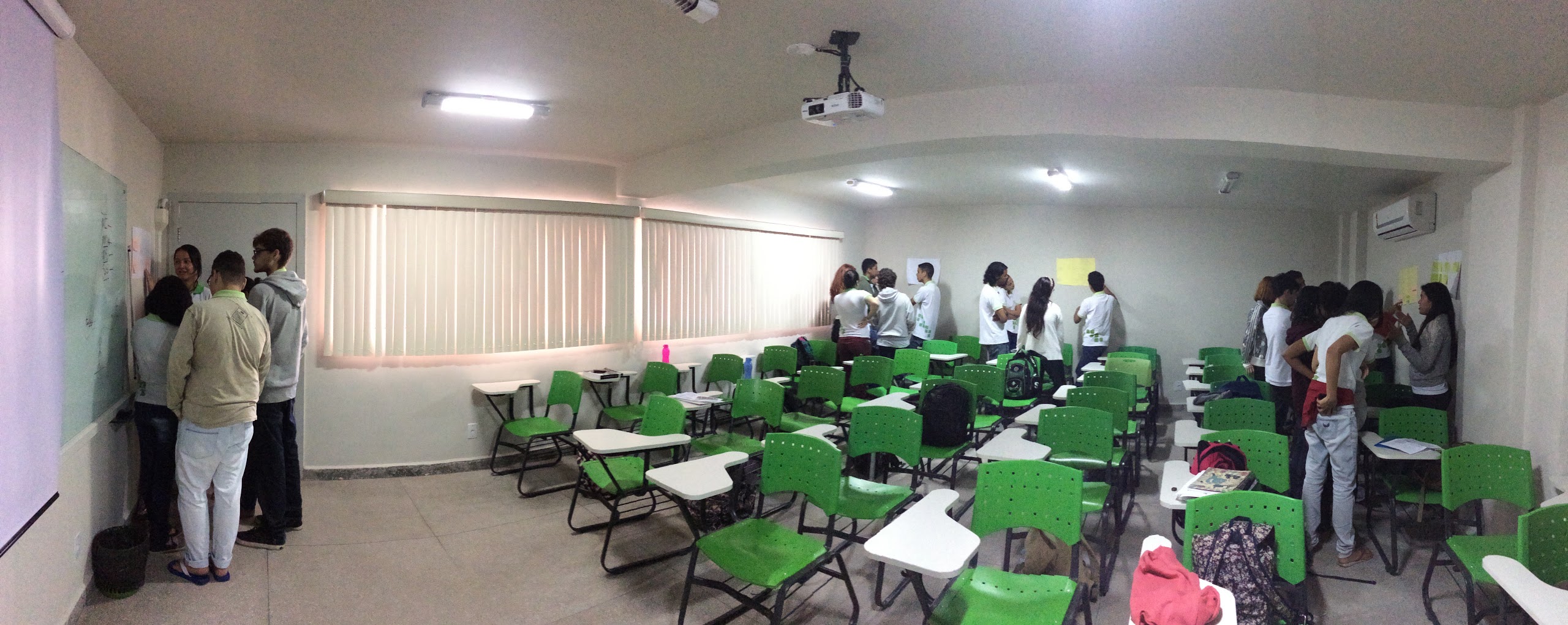
Networking is one of my key factors to reach success in my professional practices. It is a way for making my mind work in a sharp fashion for having new ideas to try with my students. By collaborating with my peers, I get the support I need in my own school to put in practice innovative projects and share the outcomes, getting their feedback and ideas for expanding the collaborative learning structures already set. And, by collaborating internationally, I have the access to new experiences, new technologies and new learning environments, accessing new cultures and their ways of thinking. In order to open our school for the world, we organized in my campus the I Forum of Internationalization that happened in early March ‘17, in which was possible to share with 220 members of our school community the experiences of foreign professors and exchange students. It was beautiful to listen to the students daring to use English to question the speakers, once many of them had contact with a foreign language only in high school.
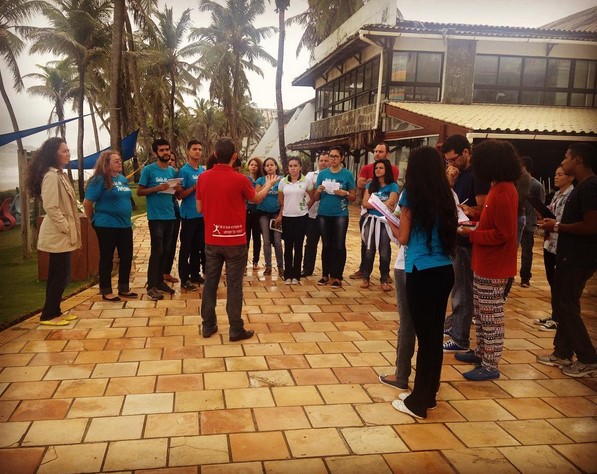
Networks allow me to see beyond borders. I had the opportunity to spend 6 weeks between March and May 17 at HAMK, developing my professional skills under the supervision of the Global Education Research & Development group. During this time, I had great experiences and in here, I present two of them. In the first one, I followed professor Vesa Tuomela and his team in order to learn more about innovation in teaching practices. It was very challenging and rewarding. We had meetings with his professional development group and entrepreneurship, in which I had the opportunity to share my background and get inspired by their actions towards the flipped learning with emphasis on LEAN Service Creation.
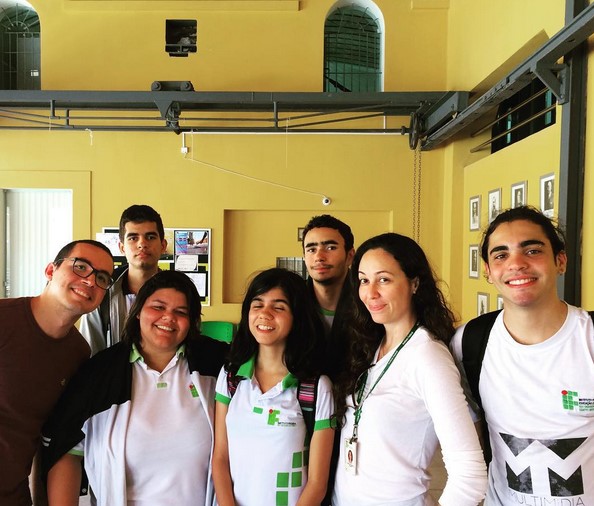
The second one, I managed to observe and participate as a guest and as an invited speaker of the group enrolled on the International Professional Teacher Education Programme (60 credits), guided and enlighten by Essi Ryymin, Irma Kunnari and Brian Joyce. Considering the diversity founded in an international program, the experience surpassed my learning goals.
Dealing with diversity in a classroom which the students share the same cultural background is challenging by itself. Dealing with diversity in a multicultural classroom adds a level of difficulty in management that requires higher skills on embracing and acknowledging different perspectives by fostering, at the same time, the mutual respect among the students. In order to dialog about the students own work, Essi and Irma mediated the talks by the use of a very interesting method named fishbowl conversation, which allowed the entire group to participate in a constructive way on the dialog topic.
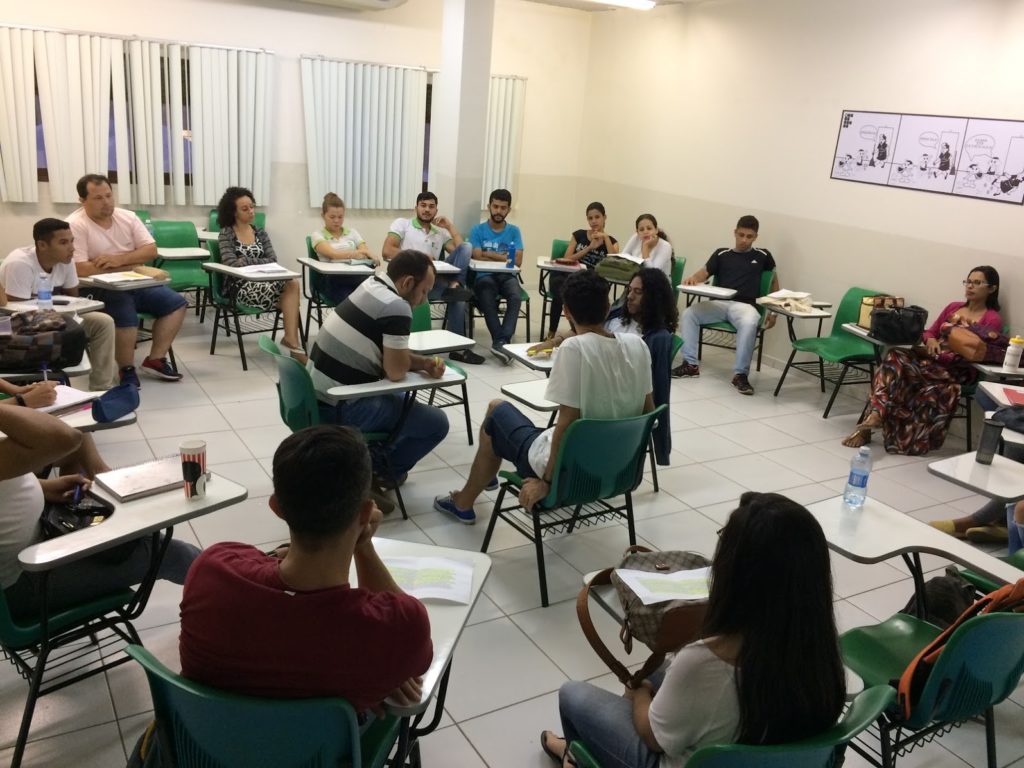
After this experience, I can say I came back to my teaching life super inspired, thankful and hoping to keep the network stronger as the time goes by. Because, as the African proverb says, “together, we go further”.
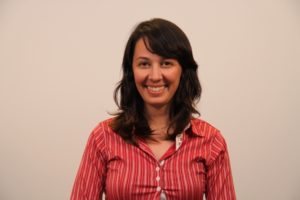
M. Sc. Carolina Corado
Professional Teacher, Science & Biology
Instituto Federal de Educação, Ciência e Tecnologia do Rio Grande do Norte (IFRN)
Follow Carolina Corado and her students in Instagram!

